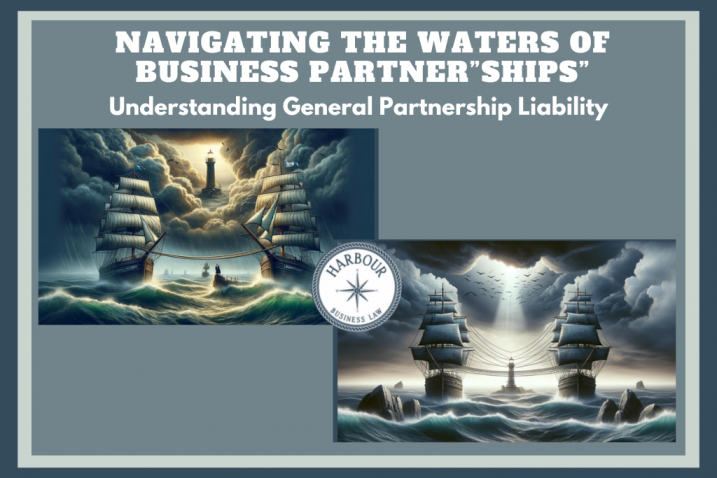
By: Katelyn J. Dougherty, Esq.
In a general partnership, one of the fundamental aspects that entrepreneurs and business owners must understand is the concept of personal liability. This principle underpins the structure of general partnerships and has significant implications for the partners involved.
Let’s explore liability issues in general partnerships:
Personal Liability: Personal liability is a defining characteristic of a general partnership. Each partner is personally liable for the debts, obligations, and legal responsibilities of the business. This means that if the partnership incurs debts, faces legal action, or cannot meet its financial obligations, each partner’s assets, including their savings, property, and investments, can be at risk.
Unlimited Liability: The term “unlimited liability” encapsulates the idea that no legal separation exists between the partners’ personal and business assets. In the event of business debts or legal claims, creditors can pursue the personal assets of any or all of the partners to satisfy these obligations. This unlimited liability extends to the actions and decisions made by any partner within the scope of the partnership’s business activities.
Joint and Several Liability: General partners often share joint and several liability. This means that creditors or claimants can choose to pursue any individual partner for the full amount of a debt or legal claim. In practical terms, this implies that if one partner is unable to cover their share of the obligation, the creditor can seek full compensation from any other partner(s) until the debt is satisfied.
Mitigating Liability: While personal liability is a significant consideration in general partnerships, you have the power to mitigate it. One way is by purchasing liability insurance to protect your personal assets from business-related liabilities. Another powerful tool is the careful structuring of the partnership agreement. Delineating clear roles, responsibilities, and decision-making processes can significantly reduce the risk of disputes and potential liabilities.
Legal and Financial Planning: Given the potential severity of personal liability in a general partnership, it’s not just a good idea but necessary to engage in thorough legal and financial planning. By consulting with legal professionals who can help draft a comprehensive partnership agreement that addresses liability issues, dispute resolution mechanisms, and exit strategies, you can feel reassured that you’re prepared for any eventuality. Working with financial advisors to ensure the business is well-capitalized and has contingency plans in place for unexpected financial challenges is another crucial step in this planning process.
Exploring Alternative Structures: In many cases, individuals should consider opting for alternative business structures, such as limited liability partnerships (LLPs) or limited liability companies (LLCs), which offer greater protection of personal assets from business liabilities. These structures can provide a middle ground between the complete personal liability of a general partnership and the more stringent liability protection offered by corporations.
Understanding and planning for liability issues is crucial for the financial security of the partners and for the overall sustainability and risk management of the business. Partners must have a comprehensive grasp of the legal and financial implications of personal liability in a general partnership and take proactive steps to address and mitigate these risks.
Remember, this blog provides a high-level overview of setting up a business partnership. For a deeper dive into each of these areas, contact a business attorney for tailored advice for your specific circumstances.
____________________________________________________________
Don’t have a business attorney? Get in touch with our team by emailing Info@harbourbusinesslaw.com.
____________________________________________________________
This Blog was written by Founding Attorney, Katelyn Dougherty.
DISCLAIMER: This blog is for educational purposes only and does not offer nor substitute legal advice. This blog does not establish an attorney-client relationship and is not for advertising or solicitation purposes. Any of the content contained herein shall not be used to make any decision without first consulting an attorney. The hiring of an attorney is an important decision not to be based on advertisements or blogs. Harbour Business Law expressly disclaims any and all liability in regard to any actions, or lack thereof, based on any contents of this blog.